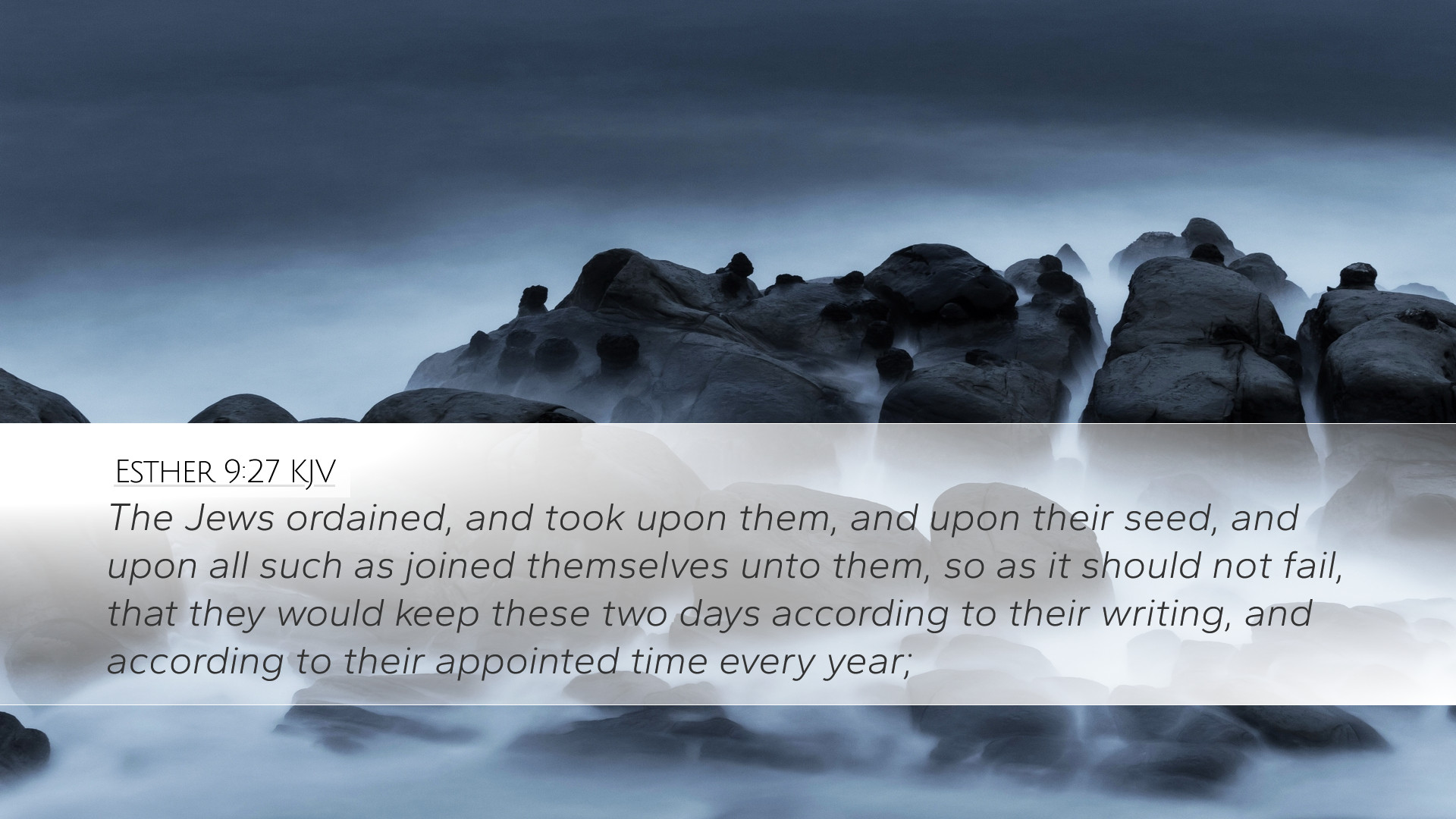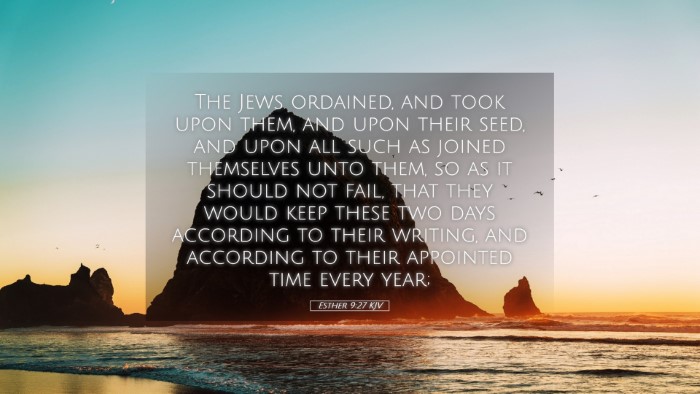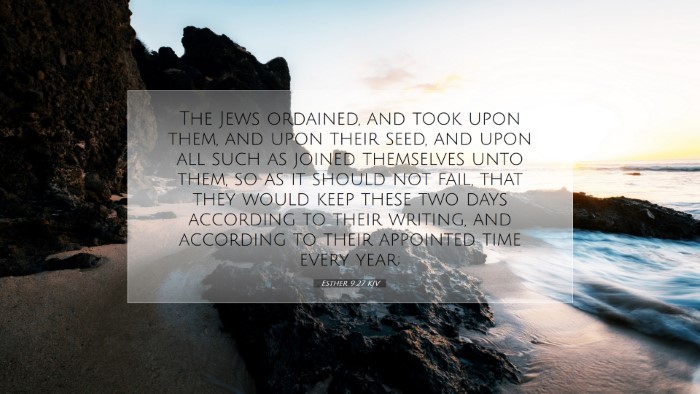Commentary on Esther 9:27
Esther 9:27: “The Jews established and took upon them, and upon their seed, and upon all such as joined themselves unto them, so as it should not fail, that they would keep these two days according to their writing, and according to their appointed time every year.”
Introduction
The verse in question serves as a significant climactic moment in the Book of Esther, specifically relating to the celebration of Purim. This commentary seeks to distill the insights of public domain scholars such as Matthew Henry, Adam Clarke, and Albert Barnes, providing theological, historical, and applicative reflections relevant to pastors, students, theologians, and scholars alike.
Theological Significance
At the heart of Esther 9:27 is a profound act of remembrance and identity. The establishment of Purim by the Jews is a deliberate act of creating a national and religious identity grounded in a historical event of deliverance from annihilation.
- Historical Context: As Matthew Henry elaborates, the context of this verse roots back to the urgent and grave threat against the Jewish people under Haman's decree. The resulting deliverance highlighted God's sovereignty in averting disaster.
- Covenantal Identity: Albert Barnes underscores that the decision to observe Purim annually was about affirming their covenantal identity before God. The Jews recognized that their survival was not merely a matter of chance but a testimony to divine intervention.
Literary Context
Esther 9:27 comes at the conclusion of the narrative arc. Clarke points out that the chapter reflects the Jews' transformation from despair to joy, hence the importance of establishing these days of celebration. The narrative culminates in the people claiming their identity both as survivors and as faithful practitioners of God’s mercy.
Commentary Insights
1. Establishment of Tradition
This verse emphasizes the importance of tradition within the Jewish faith. Henry notes that traditions serve to bind the community together and provide a continuous link with their heritage. The dedication to keep these days “according to their writing” reflects their commitment to obeying God and commemorating His acts of salvation.
2. The Role of Memory
Memory plays a critical role in the Jewish understanding of history. Barnes brings attention to the significance of remembering God’s deliverance. It teaches successive generations the importance of divine providence. This act of remembrance prevents historical amnesia and encourages gratitude and hope for future generations.
3. Inclusivity and Unity
The phrase “and upon all such as joined themselves unto them” suggests an inclusive practice that extends beyond ethnic boundaries. Clarke observes that this reflects the universal aspect of God's salvation—encouraging Gentiles to join in the celebration as a reflection of their newfound faith in God.
Pastoral Application
For pastors and church leaders, this passage offers meaningful insights into the role of tradition in spiritual life.
- Celebration as a Spiritual Discipline: The Jewish observance of Purim can inspire regular celebrations within the church that acknowledge God’s deliverance and grace. Creating traditions rooted in Scripture could cultivate communal faith experiences.
- Emphasizing Memory in Worship: Pastors might reflect on how forgetting past deliverances could lead congregants to despair. Encouraging the remembrance of personal and community testimonies can uplift and instill hope.
- Inclusivity in Faith Communities: The inclusivity seen in Esther 9:27 encourages congregations to welcome all who seek God, fostering environments where diverse groups can celebrate shared faith experiences.
Theological Reflection
Esther 9:27, therefore, transcends its immediately historical context, pulling us into a broader theological reflection on identity, deliverance, and community. The enduring practices established remind believers today that their faith is built on a rich thread of God’s faithfulness throughout history.
Conclusion
In summation, the insights garnered from public domain commentaries depict Esther 9:27 as a pivotal verse that affirms Jewish identity, celebrates divine deliverance, and models the importance of tradition, memory, and inclusivity. As such, its implications resonate beyond historical Judaism into current Christian practice, inviting followers of Christ to affirm their own stories of grace and deliverance.


